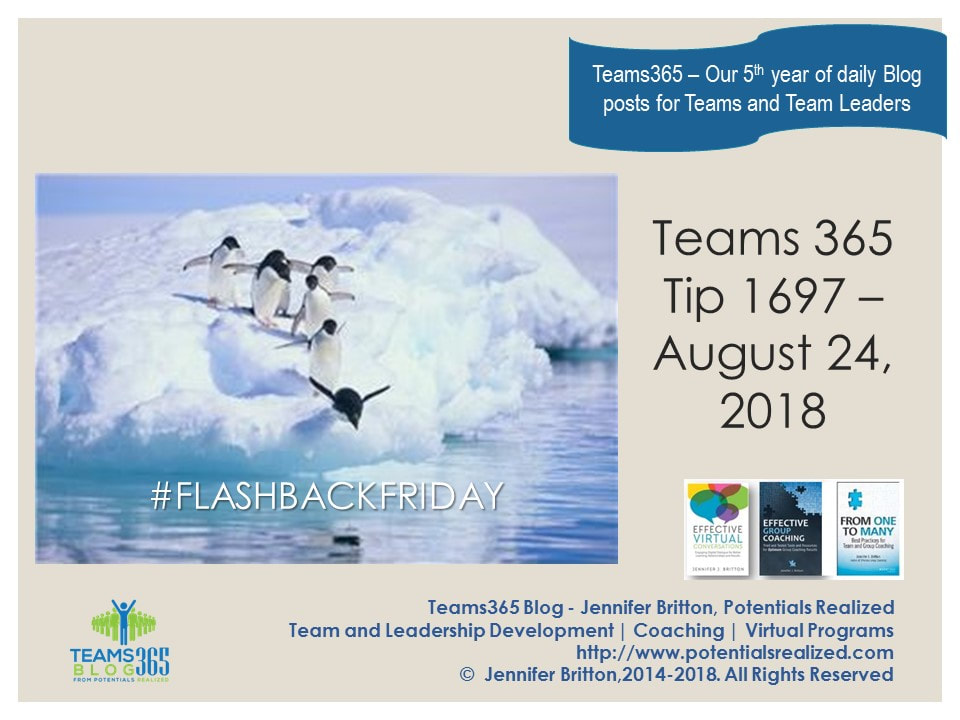Here’s what I wrote:
“As the summer draws to a close for those of us in the northern hemisphere, people are gearing up for back to school and work. It's a great time to be working with our clients on goals - and whether you are an individual, team or group coach, goal-setting is a foundational piece of our work with coaching clients. This article explores five key elements of goal-setting.
1. Which Goal-Setting Framework?
Many of us work with our clients around setting SMART Goals, goals which are Specific, Measurable, Achievable, Relevant or Resonant and Time-bound. SMART goals allow clients to articulate goals which are more detailed, and therefore easier to track progress on.
There are several other goal-setting frameworks out there including what John Whitmore describes in his seminal book, Coaching for Performance, as PURE goals which are Positively stated, Understood, Relevant and Ethical. For some, goals may be enshrined in a one page action plan, or in organizations as part of a development plan that is shared with the client's consent.
Consider with your clients which goal-setting frameworks will support them best. Their own style will have an influence on the type of goal framework they may wish to adopt.
Motivation is essential: Regardless of goal-setting framework it is important to explore with clients the issue of motivation. We can be motivated by things that are internal, or external. What's the "driver" for achieving this goal? Supporting our clients to connect with the motivational factor of the goal, or what I call SMART-E - the excitement, supports clients as they move through the peaks and valleys and when they hit the slump. When goal-setting, work with clients to connect their goals with their values and the importance of achieving them in the bigger picture.
2. Goal Timelines
What's the timeline on this? Goals can change dramatically based on the timeframe provided. Is this a short term goal, medium or long-term? When goal-setting, it can be seductive to always work on short term goals that create quick wins, but many times these become a rote check-box activity. Supporting clients to link their goals to their values and the WHY behind it, is important. For medium and long term goals, what will be motivational for the client over time? It is also important to work with clients on updating their goals as their context changes and key goals are achieved. You may want to build in goal checkpoints throughout the coaching process.
3. Goal Visibility
Make goals visible. Keeping goals visible can help to remind our clients of what they have identified as important. What is the structure which will keep their goals visible in a way that works best? Is it a post-it note on their computer screen, is it a photo on their phone or tablet, or is it something else? When you're goal-setting, inquire with your client about what structure will keep this visible and top of mind for them.
4. Accountability and Support
In the book, The Oz Factor, authors write, "Accountability is the guiding principle that defines how we make commitments to one another, how we measure and report our progress how we interact when things go wrong, and how much ownership we take to get things done. It is, in essence, the nerve center that runs throughout every part of the organization and through every working relationship to every member of every team." The Oz Principle
Who will the person be accountable to - you? Others? In achieving this goal what do people need to say yes to? No to? How does the person want to be supported? Do they want their feet held to the fire, or do they want a high five? Building accountability into goal-setting is a key part of the coaching process.
5. Celebration and Recognition
Celebration and recognition of goal achievement is important, especially for large goals. In today's busy work world, we may not stop and pause and recognize our accomplishments. It is very common for teams and leaders to check off the box, and move onto the next goal without really taking the time to capture new learning, and what can be applied to future projects. In addition to supporting learning, recognizing and celebrating achievements helps us to connect with the WHY of each goal and its' importance.
Your Pondering Question: How can these five elements - Goal-Setting Frameworks, Goal Timelines, Goal Visibility, Accountability and Support, and Celebration and Recognition amp up your next coaching conversation - and results for your clients?”
Enjoy your last week of summer scheduling!
Best wishes,
Jennifer
Potentials Realized | Effective Virtual Conversations | Coaching Team Leaders
We provide team and leadership development support through coaching, consulting and training services
Author several books including Coaching Business Builder Workbook and Planner (2018) & Effective Virtual Conversations (2017)
Email: [email protected]
(416)996-8326

 RSS Feed
RSS Feed





